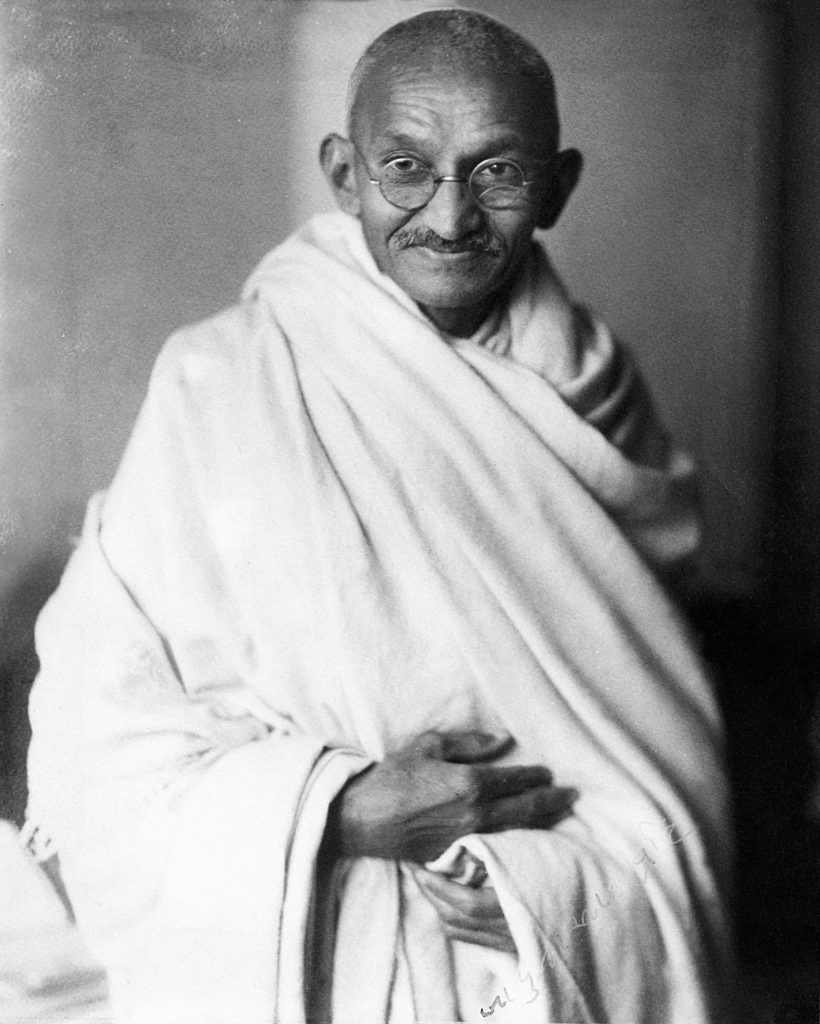Today, the 2nd of October 2020 marks the 151st birth anniversary of Mohandas Karamchand Gandhi, the Father of the Nation. Mahatma Gandhi is prominently remembered as a freedom fighter and leader of India’s movement for independence. However, the early years of his life were spent in studying and practicing law, and his interaction with the law influenced his approach to the freedom struggle.
1. Mahatma Gandhi’s study of law
Gandhiji passed the matriculation exam in 1887. In 1888, he went to England to study law and become a barrister. On 6 November 1888, Gandhiji was admitted as a student of the Inner Temple. Around this time, he also enrolled as a student in the University College, London for courses in Indian law and jurisprudence. Interestingly, the Inner Temple disbarred Gandhiji in 1922 after his imprisonment during the civil disobedience movement in India, but later restored his name on its rolls and also honoured him by unveiling his special portrait in its library in 1984.
After passing his examinations, Gandhiji was called to the Bar on 10th June, 1891 and was enrolled in the High Court of England the next day. A day after this, he sailed home to India.
2. Gandhiji’s first case
After his return to India, Mahatma Gandhi started a practice as a lawyer in Bombay. Here, he took up his first case, representing a client by the name Mamibai and charging 30 rupees as his fee. It was a minor case which marked Gandhiji’s debut in the Small Causes Court.
Gandhiji was appearing for the defendant Mamibai and thus had to cross-examine the other side’s witnesses in court. He was nervous and could not think of any questions to ask. He finally apologised to his court and client and said that he could not conduct the case. He asked his client to engage a different lawyer and refunded the fee. Gandhiji hurried out of the court not knowing whether his client had won or lost her case. After a disappointing stay of 6 months in Bombay, Gandhiji shifted his practice to Rajkot.
3. Gandhiji’s legal practice
In 1893, Gandhiji left for South Africa after taking up a job offer from Dada Abdulla and Co., a firm in Durban which wanted to engage his legal services. Gandhiji took a keen interest in the Dada Abdulla case and persuaded the parties to submit the suit to an arbitrator instead of continuing with expensive and prolonged litigation. The arbitrator finally ruled in Dada Abdulla Sheth’s favour. Gandhiji was overjoyed at his success and gained confidence that he would not fail as a lawyer.
Mahatma Gandhi felt that the duty of an advocate was not to exploit legal and adversary advantages but to promote compromise and reconciliation. As far as possible, he advised his clients to settle with their opponents out of court. A large part of his legal practice was in the interest of public work, for which he charged minimal expenses or no charge at all. Further, Gandhiji wanted to practice law without compromising on truth. He did not encourage his clients or witnesses to lie, even if it meant losing the case. At the beginning itself, he would warn a new client that he would not take up a false case or coach the witnesses. In his own words, he built a reputation such that after a point, clients stopped approaching him with false cases.
After a legal career of around 20 years, Gandhiji entirely abandoned the practice of law in 1910 and devoted his entire time and energy to the service of the community. He returned to India from South Africa in January 1915, and went on to become one of the foremost leaders of our freedom struggle.
4. The Mahatma’s sedition trial
In 1922, the Mahatma was arrested and tried in court for the crime of sedition under section 124A of the Indian Penal Code. Gandhiji was put on trial for causing disaffection against the British colonial government by authoring three seditious and provocative articles in the paper Young India. The trial took place on March 18, 1922 in a small crowded court room in Ahmedabad before the Judge Robert Broomfield.
The trial came to be known as “the great trial”, because both the judge and the prisoner behaved with uncommon courtesy and because Gandhiji stated the case for India’s freedom with fairness and precision. Gandhiji gave a memorable speech at the trial pleading guilty to the offence of sedition and inviting the Judge Broomfield to punish him with the most severe penalty. The speech finds a place of honour in the great legal classic The Law as Literature.
5. The Mahatma’s quotes on law
a) On the meaning of independence – Independence meant voluntary restraint and discipline, voluntary acceptance of the rule of law.
b) On the legal profession – The question of reform of the legal profession is a big one…I am strongly of opinion that lawyers and doctors should not be able to charge any fees but that they should be paid a certain fixed sum by the state and the public should receive their services free. They will have paid for them through the taxation that they would have paid for such services rendered to citizens automatically. The poor will be untaxed but the rich and the poor will have then the same amount of attention and skill. Today the best legal talents and the best medical advice are unobtainable by the poor.
c) On the language of the courts – In order to enhance the status and the market-value of the provincial languages, I would have the language of the law courts to be the language of the province where the court is situated.




